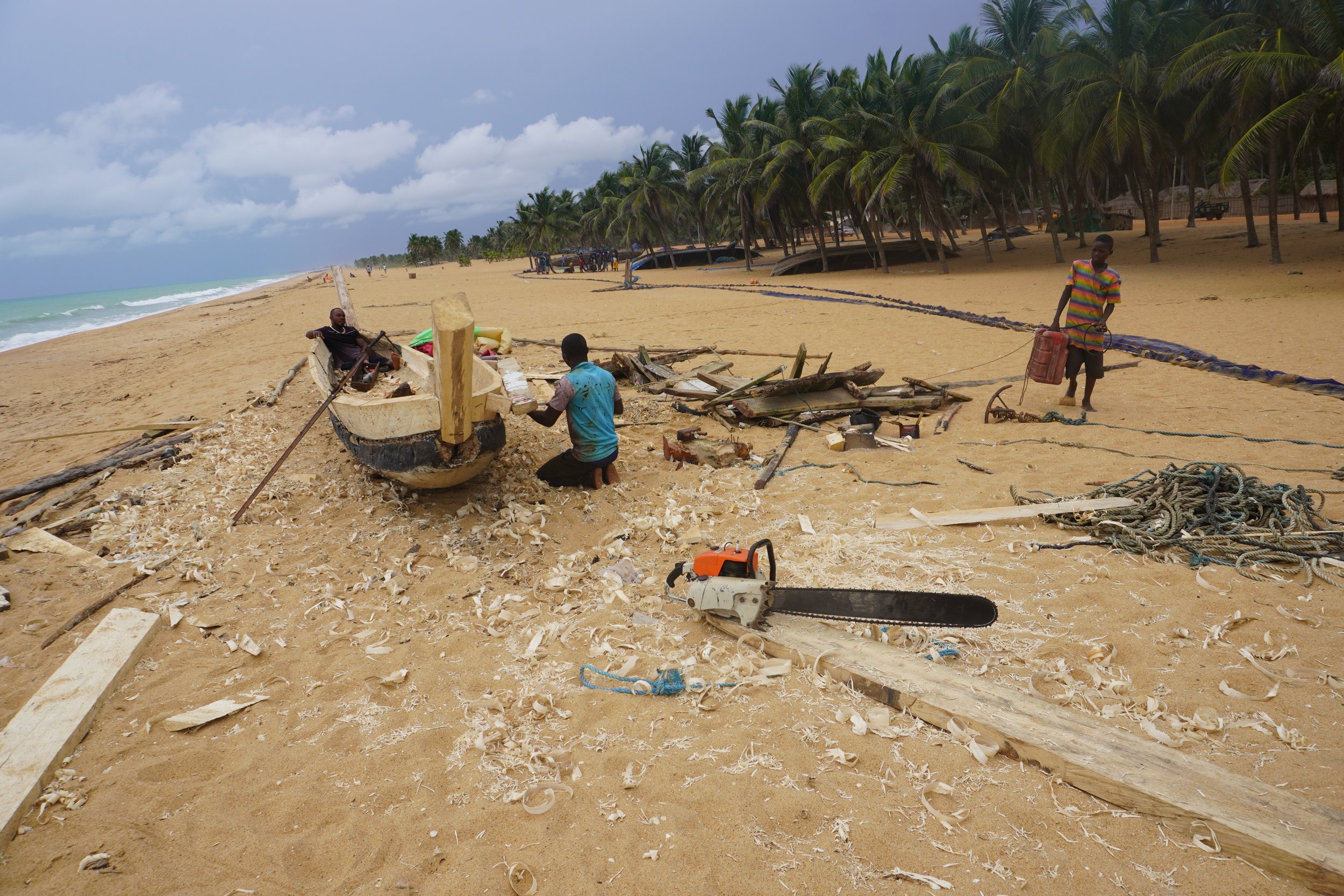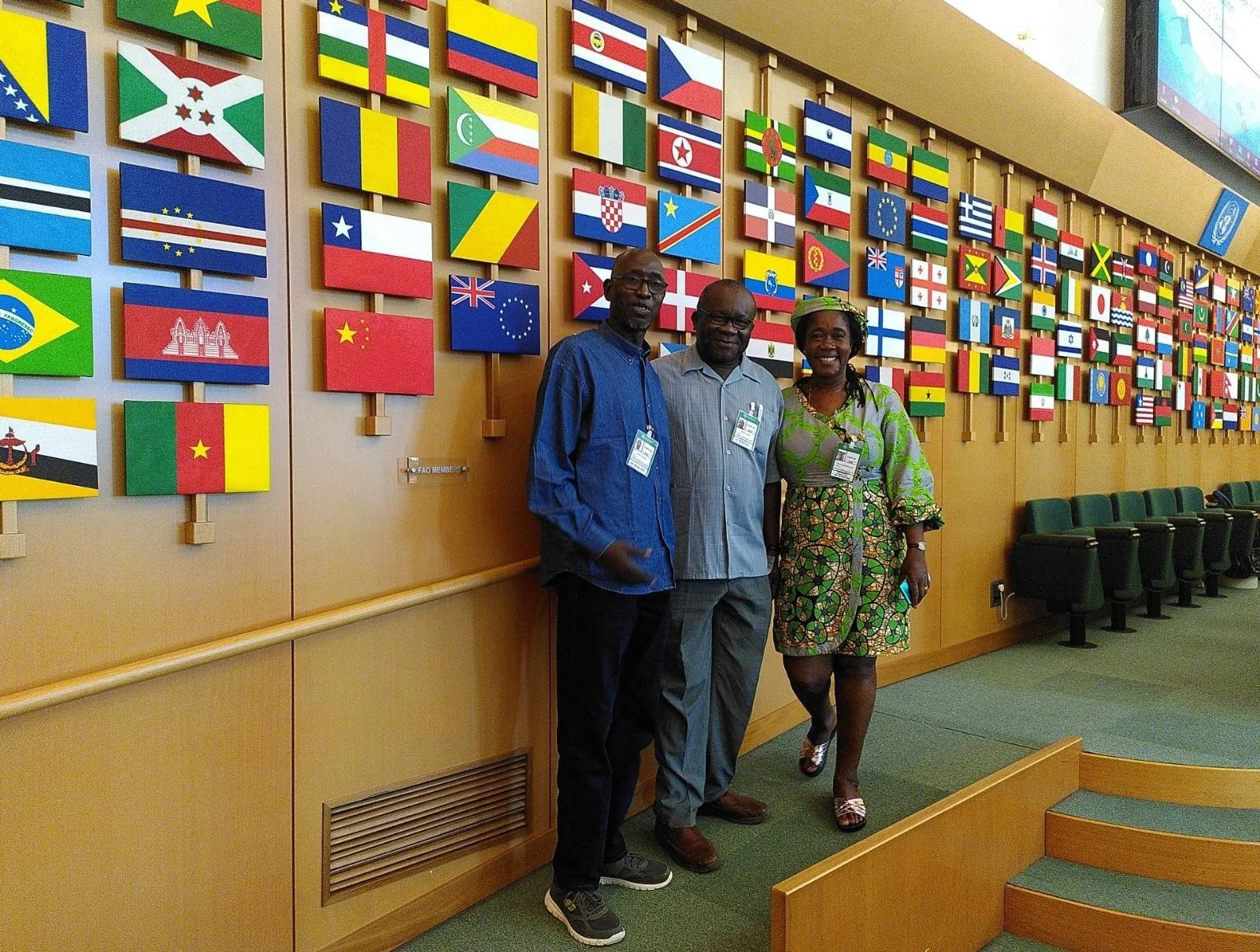Costas Kadis: “the EU Ocean Pact will be a model of sustainability, good governance, and coherence”
8th meeting of OACPS Ministers Responsible for Oceans, Inland Waters and Fisheries: artisanal fisheries representatives call for the protection of coastal zones by and for communities
In September 2024, the Ministers responsible for Fisheries of the Organisation of African, Caribbean and Pacific States (OACPS) met in Dar es Salaam (Tanzania) to discuss the theme ‘ Accelerating action for sustainable and resilient oceans, fisheries and aquaculture in OECP member countries and regions’.
Liberian artisanal fishers oppose further unravelling of their fishing zone to let trawlers in
In April 2024, the Liberian National Fisheries and Aquaculture Authority (NaFAA) invited several fisheries stakeholders to validate a draft fisheries management plan for a multi-species deep-water shrimp fishery, which are very vulnerable and already over-exploited. LAFA deplores the absence of an appropriate stakeholder engagement during the development of the plan.
Artisanal fisheries in the spotlight at the first FAO Sub-Committee on Fisheries Management
Back in 2022, African artisanal fishers asked that the implementation of the FAO guidelines on sustainable small scale fisheries be a standing item in the agenda of the new Sub-Committee and insisted it was essential to allow artisanal fisheries organisations to participate actively to its discussions.
African countries to develop guidelines for the negotiation of fair and transparent fisheries agreements
Indian Ocean fishers and civil society call for more transparency and diligence in the management of tuna stocks
Cacophony over Cameroon - EU sanctions the country for IUU whilst supporting a value chain involved in IUU
Industrial fishing operations in Cameroon’s waters are dominated by trawlers of foreign origin in joint ventures with local entrepreneurs where 83% of these vessels have been found to be connected to entities in China. These trawlers are allowed to exploit fish stocks beyond 3 nautical miles of the coastline, including the highly prized shrimps.
The number of deaths of African artisanal fishers is devastatingly high, says new research
China's capture of Ghana's fishing industry is threatening food security
Even though it is illegal for foreign vessels to fish in Ghana, over the last decade Chinese-owned vessels have proliferated. Journalist Kwabena Adu Koranteng investigates how business people well connected with power act as fronts for Chinese fishing industry. Ghana loses 50M€/year but more concerning is the fact that severe overfishing is impacting food security and nutrition in the country.
COFI 35: “Never has there been such enthusiasm for small-scale fisheries”
“People think the fishing business is for the illiterate, but they cannot be more wrong”
Ghana artisanal fishers facing the perfect storm of climate change and IUU fishing
Ghana artisanal fishers launch a wakeup call against “unhealthy competition” and for a new approach to fight IUU
The Gambia-EU SFPA: transparency is necessary to make the fight against IUU efficient
COFI34 recap: Increased awareness and space for small-scale fisheries
Liberian fishers protest against the potential issuance of fishing licences to six Chinese supertrawlers
Recently built in China, these vessels, Hao Yuan Yu 860, 861, 862, 863, 865 and 866, arrived mid-June in Monrovia after failing to undertake fishing operations in Mozambique. This demand follows a trend of licence requests by vessels of Chinese origin in several West African countries, such as Senegal and Ghana.





















